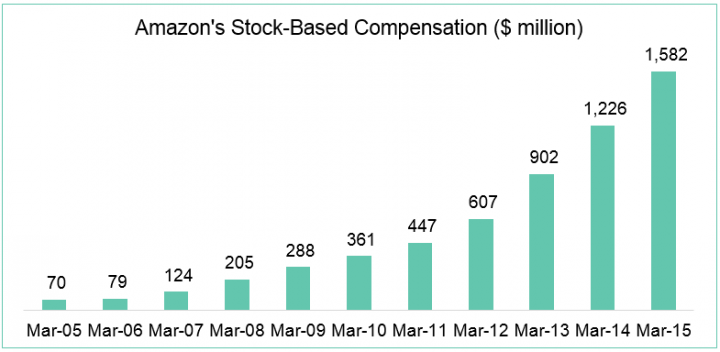

In regards to stock options this isn’t the case, however, as they are representing decreasingly less of overall SBC, in this article we focus on RSUs only.
SBC CASHFLOWS SOFTWARE
We surmise software firms do consider SBC is a real expense, but including RSUs as an expense on the income statement will cause a double counting of costs in a DCF valuation. Some pundits will argue it’s more about how software firms speak in purely non-GAAP/IFRS terms during the quarterly earnings calls, creating the perception that they are discarding SBC as a real expense. While many believe it is misleading, at Convequity, we view such companies’ financial presentation as fairly straightforward – they present performance adhering to accounting standards and also provide the same excluding SBC with a clear reconciliation. However, a portion of experts condemn the presentation of non-US GAAP/IFRS – which regulators like the SEC actually allow – as they claim it’s an attempt to pull the wool over investors’ eyes. Like with all companies, software firms must present the consolidated financial statements in accordance with either US GAAP or IFRS standards, dependent if they are registered in the U.S.
SBC CASHFLOWS FREE
Want to learn more about effective operations? Check out our free online course, “ Key Business Practices ”.There are many market pundits that express much displeasure with how software firms present their financial performance excluding stock-based compensation (SBC). Working with a Business Advisor means you are not alone and that you can get help to build your plan. If you’re ready to take the next step, book a meeting with an experienced Business Advisor at Small Business Centres Ontario. This is a great idea for students, or even those wanting to test the demand of a new product. The added benefit of temporary retail space is that it frees up business owners to pursue other ventures after their busy season has passed. These are temporary retail spaces where they can sell their products for a short period of time, and not worry about paying rent for the remainder of the year.


In recent years, consumers may have noticed a trend towards pop-up shops. For example, bring on students to help during summer months, with the understanding that their employment contract will end in September. A popular solution is to hire workers for a fixed term. When times are busy, many hands are needed, but it becomes difficult to pay employees when sales decline. One of the biggest expenses for businesses is employee wages. The surplus can be put into a separate account for times when you must charge less, off-season. The more demand, the more customers would be willing to pay. We’ve all experienced what it’s like to pay extra for things like cottage rentals during summer months.

In addition, offer your products to corporate event planners who are looking for treats and gifts all year long. For example, if you sell holiday gift baskets in December, consider creating customized packages for other popular recognized special occasions such as Valentine’s Day and Mother’s Day. One way to offset the decline in sales is to offer complimentary sales during your slow season. Here are a few ways to plan for those slow times, so that you can avoid financial struggles. But as the season passes, sales slow down and there is often a dramatic decline in income. It’s when business owners experience an abundance of sales. Operating a seasonal business can be exhilarating! Think of the excitement generated during times like fall harvests or holiday treats and decorations.


 0 kommentar(er)
0 kommentar(er)
